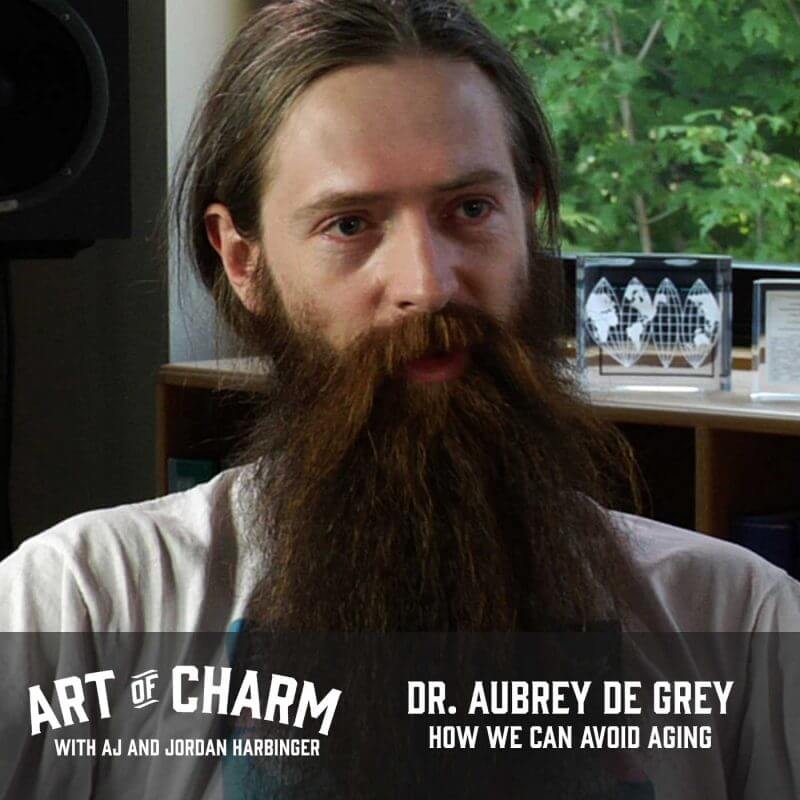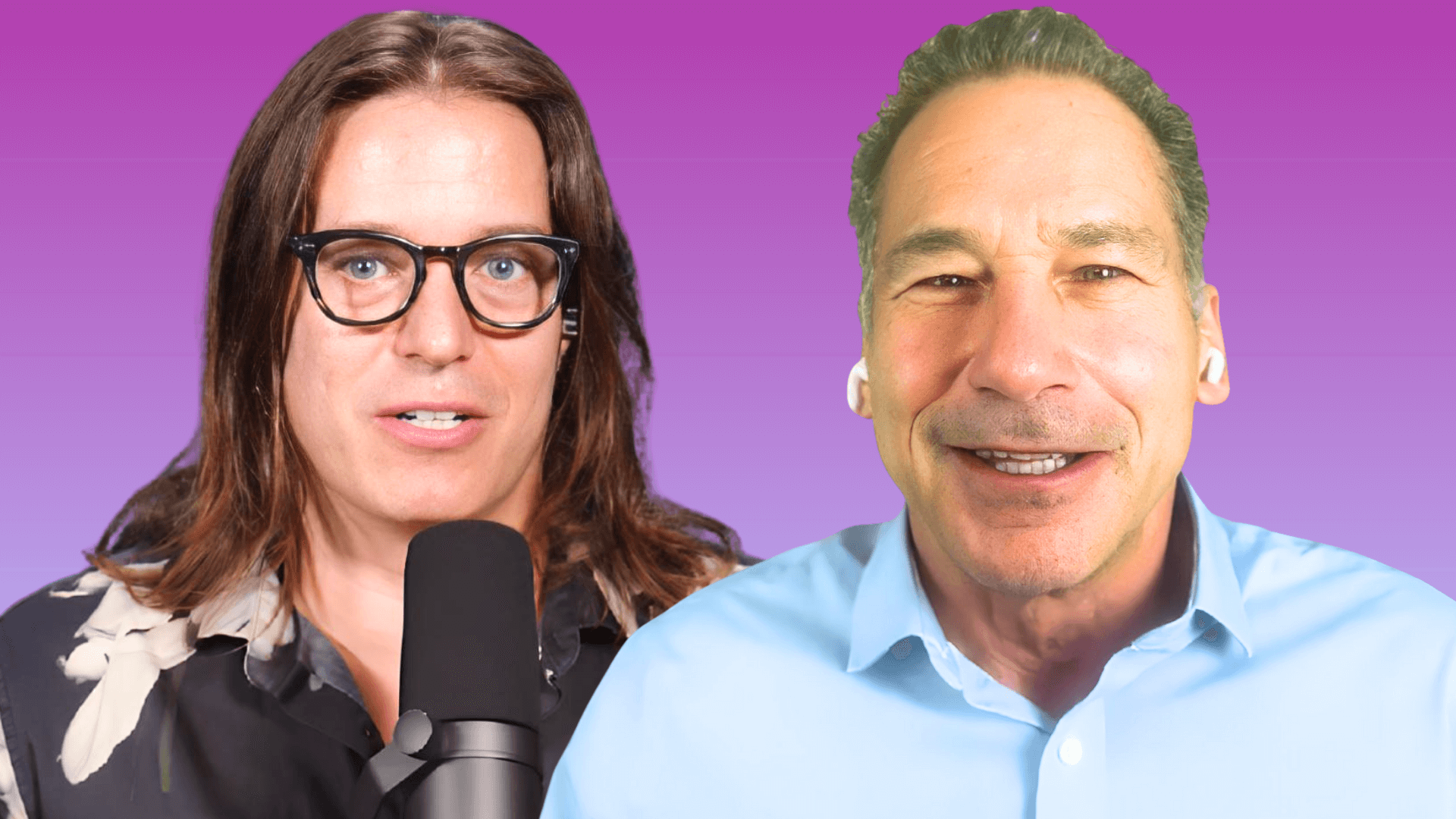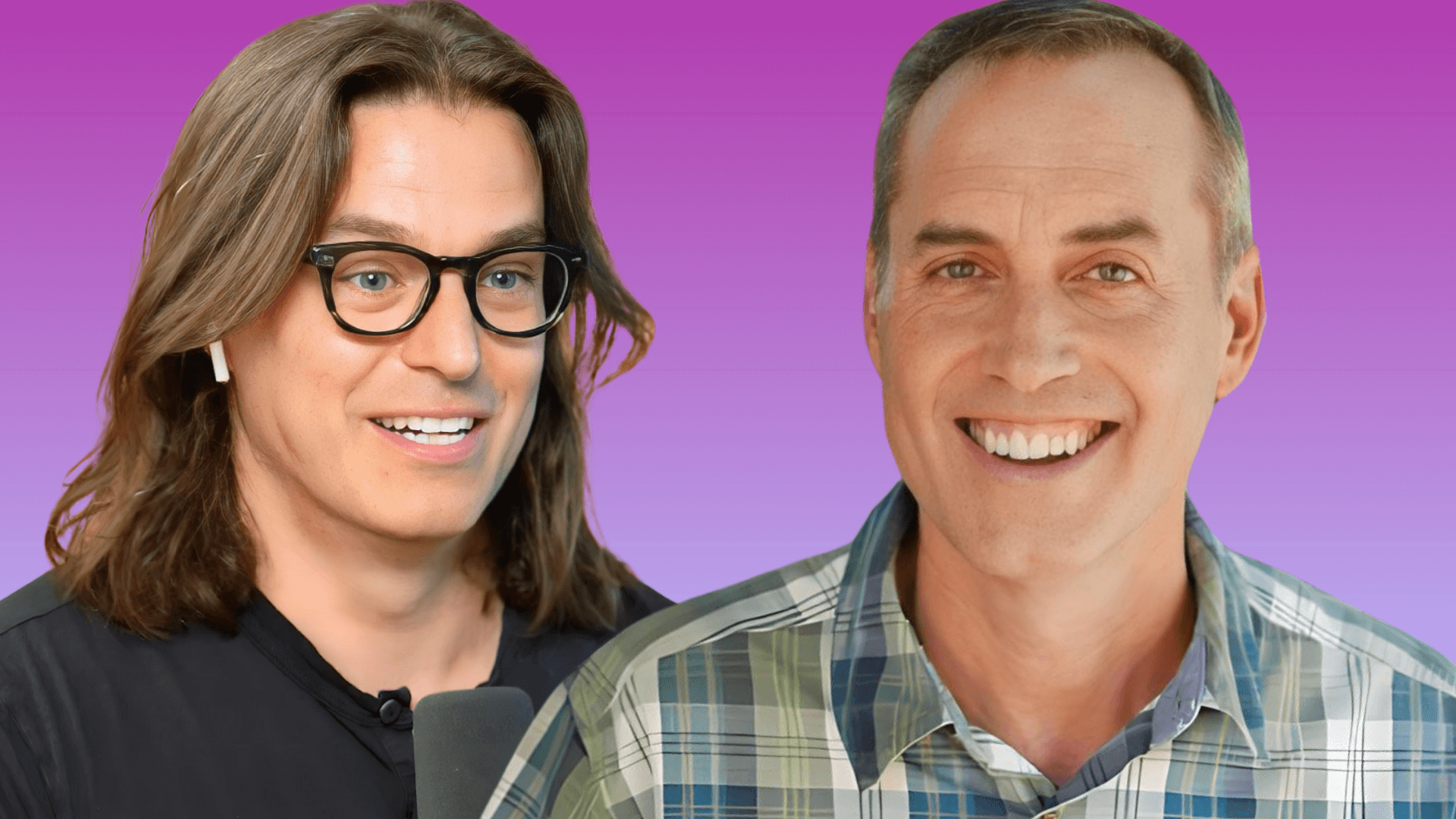Who wants to live forever? You do, and the science of rejuvenating biotechnology aims to make it a possibility.
“Aging is the world’s number one problem.” -Dr. Aubrey de Grey
The Cheat Sheet:
- Dr. Aubrey de Grey explains why breathing is bad for us (really).
- Is a four-digit lifespan truly possible?
- 100,000 people die every day from old age: true or false?
- Which country spends $30 billion every year on medical research?
- Will rejuvenation only be available for the wealthy?
- And so much more…
[aoc-subscribe]
Death is an inevitability that all living things must face. As human beings, we grudgingly live with this fact from our earliest days to our gasping last and generally cope with it in the best way we know how: denial. We tend to pretend that we’re going to live forever in spite of knowing otherwise. We see confirmation of death’s inevitability as our loved ones grow old and pass away; no matter how “full of life” our favorite people seem, their day of reckoning will come. We resign ourselves to this fact and move on until it’s our turn.
But what if this “fact” were proven to be a sham? What if the physical consequences of aging could be reversed and death could be sent packing indefinitely? Today on The Art of Charm, we talk to Dr. Aubrey de Grey, a scientist and author who has spent the last two decades trying to unlock the secrets to longevity and solve what he calls “the world’s number one problem.” Might we all live to be youthful Methuselahs exempt from the ravages of the cruel aging process? Listen here and judge for yourself.
More About This Show
Dr. Aubrey de Grey is a biomedical gerontologist who became fascinated with the subject of aging when he was in his 20s. In conversation with biologists, he was astonished to find that no one else was addressing what seemed obvious to him: that aging is the world’s number one problem.
He immediately switched fields from computer science (then working on what he considered to be the world’s second most important problem: “spending so much time doing things that we don’t really want to do to make the world go around”) to biology; de Grey has been looking for ways to identify the causes of aging and develop therapies to combat them ever since.
As a mechanic might observe, a vehicle’s fuel hoses get rigid and residue accumulates in its engine over time. A good mechanic will generally be able to remedy these problems and get the vehicle roadworthy again in a reasonable amount of time.
Anti-aging scientists like de Grey believe that, while the human body is far more complex than a machine, it’s just a matter of time before the technology to compensate for this complexity is discovered. By eliminating risk of death by disease and so-called “natural” causes brought about by the process of aging means that, de Grey believes, we could have lifespans spanning 1,000 years and beyond (barring the clumsiness of, say, being hit by a bus).
In search of this technology, SENS (Strategies for Engineered Negligible Senescence) Research Foundation is the non-profit organization that has grown around de Grey’s work in what’s been dubbed “rejuvenation biotechnology.” SENS classifies aging damage into seven categories at the cellular and molecular level, which helps map out strategies for their repair — and all seven must be sufficiently addressed if we’re to succeed in fully holding back the ravages of time. (In this talk, we go into detail about two of these categories and how modern researchers — including his team — are learning to treat them.)
Unlike companies that make a profit from selling their own brands of anti-aging regimens, de Grey stresses that SENS does not sell anything — it’s purely a research center that runs on the kindness of donors and grants.
This can admittedly be a bit daunting to the pace of the research that de Grey and his team are trying to accomplish, but it keeps them honest.
“The [annual] budget of SENS Research Foundation is something around $5 million. Just putting one more zero on the end of that — taking it up to 50, or maybe $100 million — would, I think, treble the rate at which we’re going.”
In comparison, de Grey points out that the United States government spends $30 billion per year on medical research.
While not looking to run for political office anytime soon (somebody’s got to keep the lab running), he does agree that somebody more cut out for the job should be championing his (and, by extension, humanity’s) cause in government. And it’s not because running a campaign might require him to lop off his trademark beard that’s reached Rasputin-like proportions.
“I have said that I will shave my beard off for a million dollars!” de Grey tells us enthusiastically.
If you think that rejuvenation biotechnology sounds like a pie-in-the-sky dream devoid of hard science, consider this: in 2005, MIT Technology Review offered a $20,000 challenge to scientists to disprove de Grey’s research. Despite no shortage of loud naysayers, no one’s succeeded in snagging the prize and the challenge is still open.
Dr. de Grey and I also explore what (if any) moral considerations there are regarding our quest to avoid aging, and whether these kinds of therapies will only be available for the very wealthy. Check it out on today’s episode of The Art of Charm.
THANKS, DR. AUBREY DE GREY!
Resources from this episode:
We Can Avoid Aging (Dr. Aubrey de Grey’s TED Talk)
You’ll also like:
On your phone? Click here to write us a well-deserved iTunes review and help us outrank the riffraff!




